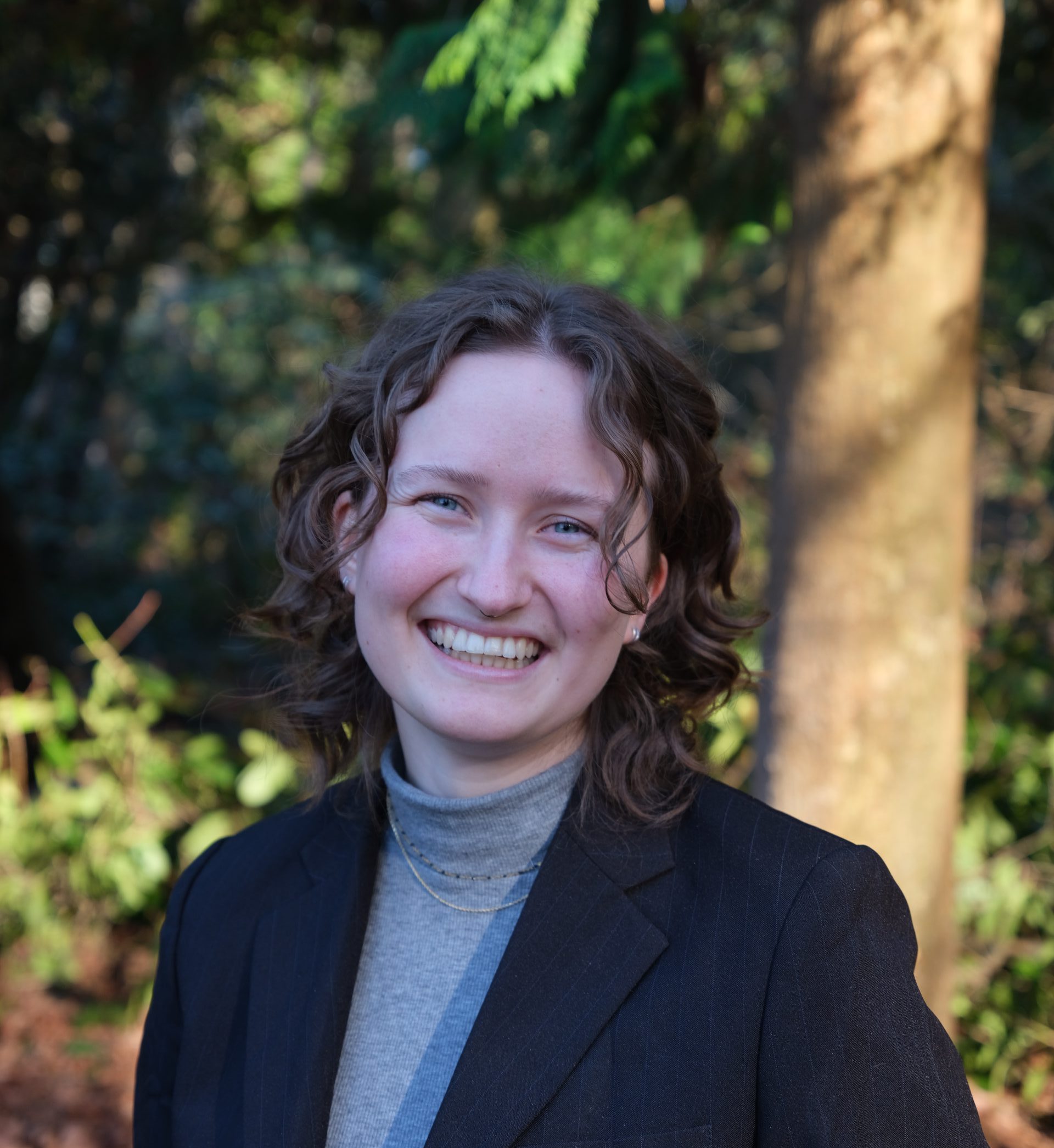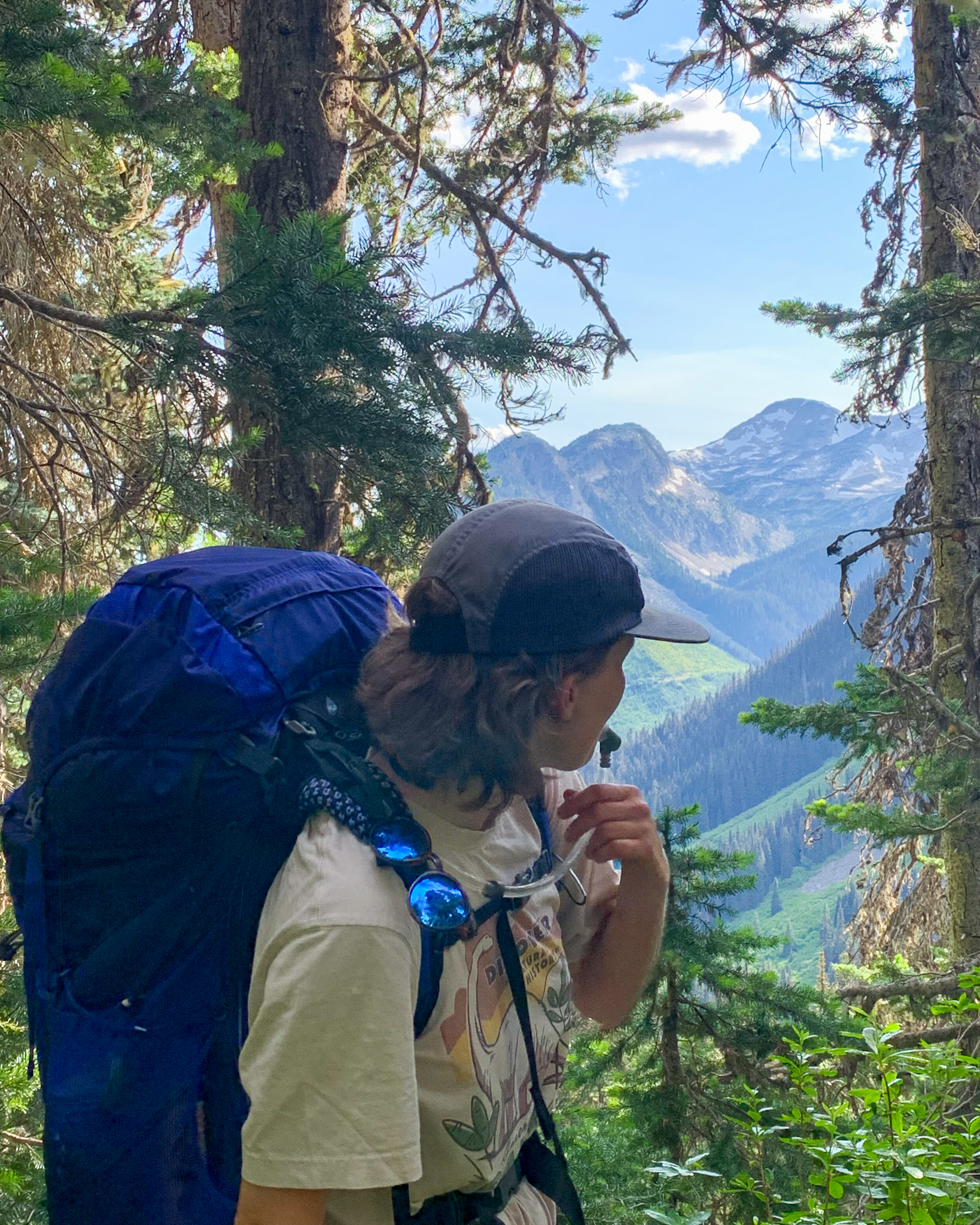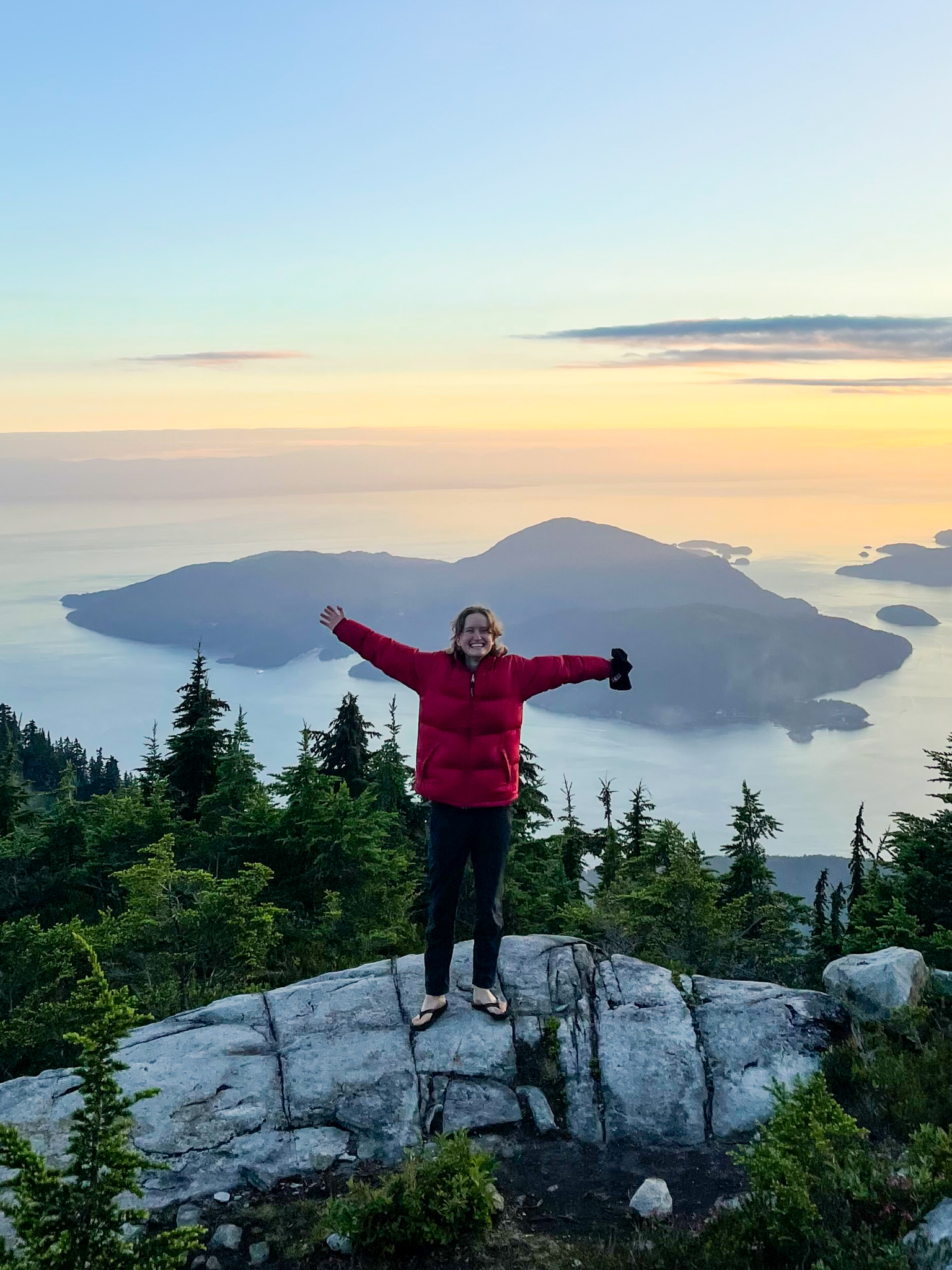

Lille Goodson
Lillie Goodson is a fourth year Sociology honours student working under the supervision of Professor Tony Silva.
Her research project, “Out in the Outdoors,” uses qualitative methods to explore how LGBTQ+ people negotiate their LGBTQ+ identities while participating in outdoor activities and communities.
How did you become interested in this topic? Why did you choose it for your thesis?
I grew up hiking, whitewater kayaking, backpacking, surfing, and skiing – all outdoor adventure sports that have a white, male-dominated, colonial history. Although there has been a recent push to make these spaces more inclusive and to reframe who is “welcome” in the outdoors, I couldn’t help but notice how few queer people there were in these spaces.
I also discovered that research about the experiences of LGBTQ+ people in outdoor adventure sports is extremely lacking. As a queer person myself, I am extremely passionate about ensuring that other queer people feel welcome and accepted in the outdoors. Enough barriers to these spaces exist already, so it is important that we question the implicit biases so as to not allow the perpetuation of more unnecessary barriers.
Can you summarize your project and its main findings for us?
In this qualitative research project, twenty-two LGBTQ+ identifying people who reside in Canada and engage in outdoor adventure sports were interviewed about their experiences.
Initial analyses indicated that most participants felt an elevated sense of connection, comfort, and safety when they participated in outdoor adventure sports alongside other LGBTQ+ people.
Analyses also found that participants often used the word “indifferent” to describe the attitudes of cisgender heterosexual people in outdoors communities towards LGBTQ+ people. When asked to describe what they meant by this, some participants indicated that this indifference did not necessarily make these spaces feel inclusive and that, rather, “there’s no neutral position to hold within [a structure with a history of exclusion]”.
These are just a few of many themes in this study that point towards the urgent need to reconsider what it means for an outdoor space to be inclusive to LGBTQ+ people.


Goodson on a backpacking trip with her girlfriend on Lil’wat and St̓át̓imc Tmicw (St’at’imc) Lands.
What was your favourite part of doing research?
Words cannot describe how much of a pleasure it has been to listen to participants share moments where they have felt joy outdoors. These stories spoke to the importance of community and connection in outdoor spaces and captured the essence of queer joy.
Queer joy is something that I really want to emphasize in this study. We cannot address barriers to the inclusion of queer people in the outdoors without emphasizing the moments when queer people do feel joy and belonging in these spaces.
Speaking with each participant has fueled my passion for making the outdoors a more welcoming space for LGBTQ+ people. I am incredibly grateful for the time and vulnerability that each participant gifted to this study during their interviews.
What is the state of the current Sociology literature on your topic? What unique or interesting insights do you think your research might add?
Current literature about LGBTQ+ identity in the outdoors is incredibly lacking. The closest findings fall into two categories: 1) gender and racial identities in outdoor adventure sports, and 2) LGBTQ+ identity in organized sports such as soccer, softball, and football.
While the latter research is extremely valuable, outdoor adventure sports such as hiking, backpacking, and rock climbing have entirely different characteristics. My research will contribute to what limited literature exists on this topic, and it will begin to shed light on the overlooked barriers and implicit biases that LGBTQ+ people face in the outdoors.


Goodson on a backpacking trip on Squamish and Tsleil-Waututh Lands.
What was the most difficult part of this learning journey?
While I have come up against various difficulties while conducting this research project, there is one challenge that stands out to me the most.
Because I care so much on a personal level about this topic, I have struggled to feel like the time constraint around this thesis will allow me to do justice to the community and participants that I am studying. Despite these anxieties, I am confident that the outcome of this project will exemplify the love, commitment, and passion I hold for promoting LGBTQ+ inclusivity in the outdoors.


